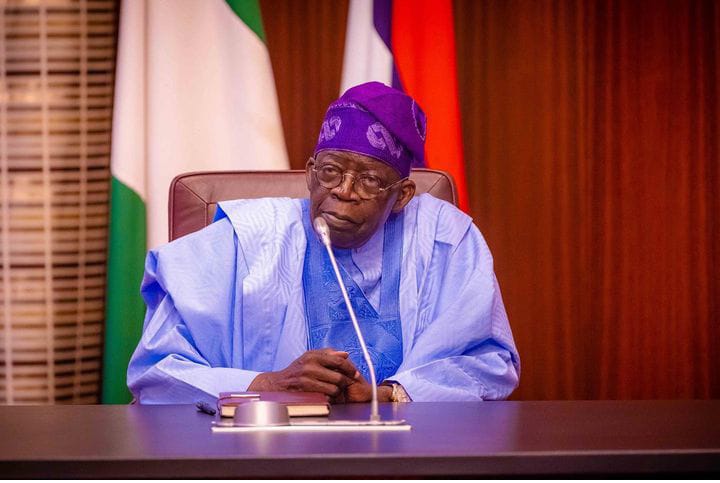The Federal Government has again refuted fresh allegations that President Bola Ahmed Tinubu approved plans for a French military base in Nigeria.
This rebuttal followed a report by an online news platform, which alleged that France was set to establish a military presence in Abuja, disguising the move as the creation of a language centre aimed at teaching French to Nigerian soldiers.
Kimiebi Imomotimi Ebienfa, the Acting Head of Crisis Monitoring and Public Communications at the Ministry of Foreign Affairs, dismissed the report, labeling it false.
According to the initial publication, unnamed sources claimed that President Tinubu was influenced by French President Emmanuel Macron during a recent visit to Paris.
The piece further alleged that efforts were underway to quietly push the project forward to avoid backlash from the National Assembly due to its sensitive nature and national security implications.
It also linked the supposed plan to the commissioning of a French language lab at the Nigerian Defence Academy (NDA) in Kaduna earlier in January 2024.
This isn’t the first time the federal government has had to address such claims. Back in May 2024, Minister of Information and National Orientation Mohammed Idris clearly stated that Nigeria was not negotiating with any foreign country regarding military base establishments.
He encouraged the public to dismiss such reports, reiterating the government’s commitment to safeguarding Nigeria’s sovereignty while deepening existing international security partnerships.
The French Embassy in Nigeria has also echoed this stance, denying any participation in alleged military arrangements.
These clarifications came after a group of northern elders reportedly wrote to President Tinubu and National Assembly leaders, voicing concerns over potential defence deals with France and the United States.
They warned against allowing redeployment of troops previously based in Mali, Burkina Faso, and Niger to Nigerian territory, arguing that such actions could compromise Nigeria’s independence in security matters.
They also criticized the track record of foreign military operations in the Sahel, citing their failure to effectively tackle terrorism.
France’s influence in Africa has come under increasing scrutiny and rejection, especially in West and Central Africa.
Anti-French sentiments have led to widespread protests in several Francophone nations like Mali and Côte d’Ivoire, with calls for complete disengagement from French control.
Much of the resentment stems from France’s colonial legacy and its continued economic and political entanglement with African governments — a relationship often referred to as “Francafrique.”
Critics argue that while France profits from its African ties, it has done little to promote long-term regional stability.
In response to growing opposition, several African countries have expelled French military forces.
Until recently, French troops were stationed in countries such as Mali, Niger, Burkina Faso, Chad, Djibouti, Gabon, Côte d’Ivoire, and Senegal.
The tide began to turn with the conclusion of Operation Barkhane in 2022, France’s primary counterterrorism campaign in the Sahel. Subsequently, Mali, Niger, and Burkina Faso revoked their military accords with France, accusing it of ineffectiveness and overreach.
President Emmanuel Macron had previously announced a phased pullout from the Sahel in June 2021.
France completed its troop withdrawals from Mali in August 2022, Burkina Faso in February 2023, and Niger by the end of 2023.
Chad joined the list in November 2024, with France beginning to scale down its roughly 1,000 troops stationed there, a process slated for completion by January 2025.
